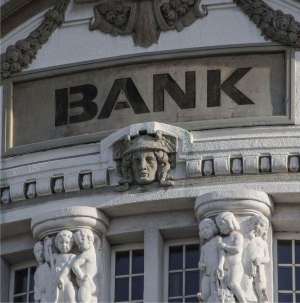All the successful companies in our country identified by the National Bank of Romania (BNR) had behind them a partner to finance them, whose role was not only to provide them with money, but also to temper them in periods of euphoria and helps them with advice in the less good times, said yesterday, Florian Neagu, Deputy Director, Financial Stability Directorate within the BNR, during a press conference.
Florian Neagu said: "The entrepreneurial spirit in the last 30 years has been very dynamic. From nearly 300,000 active companies in 1994, we now have over 800,000 entities, but there is still significant room for improvement compared to Europe. In Romania there are 52 companies per 1,000 inhabitants, compared to the European average of 84 companies per 1,000 inhabitants".
The director from the BNR added: "On the other hand, there are many companies that have negative capital. There are companies that fail to have equity of at least 200 lei, a threshold that has not changed since the 90s. Currently, out of more than 800,000 active companies, almost 260,000 have negative capital, which means that almost a third of the companies on that we have in the economy are undercapitalized, that is, they fail to meet the minimum legal requirement. However, this chronic undercapitalization has consequences on development".
According to the BNR official, the bank studied, taking into account periods of five years, the way in which Romanian companies develop, that is, if they manage to exceed the sphere of size in which they were born or in which they operate. "Unfortunately, not quite," said Florian Neagu, adding: "In the last decade, the exit from the size zone appears even less often than before, which is closely related to the undercapitalization part."
The Deputy Director of the Financial Stability Directorate within the BNR added that, according to the bank's study, 64% of companies with negative equity have been in this situation for more than ten years. "Of course you wonder how you can live like this because, in theory, it only takes one year to exit the market (...). Then, when we study whether these companies generate vulnerabilities in the economy, we see that an important part of the outstanding payments comes through this channel, from companies with negative capital", said Florian Neagu.
On the other hand, many of the companies with negative equity register profits, says the BNR official. "The law says that, when you make a profit, you must use these resources to capitalize the company and, according to the law, it reaches at least the required minimum threshold. But shareholders or associates prefer to distribute profits in the form of dividends rather than to consolidate their entity. Or, if the shareholders do not trust that entity, how can you expect a creditor to trust you, to help you support your business?", said Florian Neagu.
The innovation and added value that companies generate is another element related to the qualitative nature of the structure of companies in our country, according to the director of the BNR.
"The last decades have brought many favorable changes in this direction, but there are some nuances. We would like many high-tech companies, such as those in the pharmaceutical or aeronautical industry, and medium high-tech, such as automotive, etc. But, the share in the gross added value of our country produced by companies in these fields in the last 30 years has remained unchanged, somewhere at 7-8% (...). The good news is that the sectors where innovative knowledge prevails, the so-called knowledge-intensive services, especially IT, have a significant growth in the last 30 years. The general message is that we still have significant room to improve the quality of economic growth," said Florian Neagu.
• "Over 90% of the managers of successful companies have higher education"
According to the Deputy Director of the Financial Stability Directorate within the BNR, the bank has identified and studied the successful companies in our country since 2007, the moment of accession to the European Union and until now, by successful companies meaning companies that have managed to grow their sustainable profitability, turnover, liquidity indicators to be according to the recommended standard levels, etc.
"From 2007 until now, we have experienced numerous economic cycles, we have experienced the financial crisis, the Covid crisis and the energy crisis. We didn't find very many companies, namely 2,600 out of 700,000 - 800,000, but we focused on the lessons we can learn from these companies", said Florian Neagu, adding that most of these companies are SMEs .
According to the director of the BNR, the first lesson is that these entities are run by people who have higher education. "Over 90% of the managers of these companies have higher education, which is considerable. Additional education, not necessarily financial, makes the difference," said Florian Neagu.
He added: "The second thing is that these companies have kept their balance sheets in order, regardless of the phase of the economic cycle. When there was significant growth, they did not dream euphorically, and when there was a less favorable phase, they did not dry up the company and did not generate problems for other partners. They kept their balance sheets in order, and here I refer to solvency, liquidity, profits, etc."
According to the Deputy Director of the Financial Stability Directorate within the BNR, the third lesson is that all successful companies in our country have always had a partner behind them to finance them. "A bank, an IFN, the capital market, a creditor whose role is not necessarily just to give money. Its role is also to pull you by the sleeve when things are going very well and you may, out of euphoria, make less prudent decisions. Also, this partner can help you with advice when things are not going well", said Florian Neagu.


























































